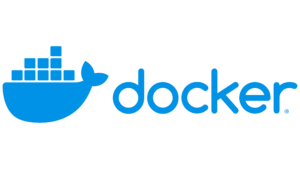Episode 53: News
Main Topic: News
Here is the news for this week:
- Two big stories were published on the LinuxMint blog this week. The first is the announcement that Mint 10 KDE has been approved for RC release. “Both 32-bit and 64-bit ISO images were approved. The Linux Mint 10 KDE Edition, featuring KDE 4.6, will be publicly available this week as an RC release.” We will be reviewing the Mint 10 KDE release in an upcoming episode, and will be talking with Jamie (aka Boo), the maintainer of Mint KDE. http://blog.linuxmint.com/?p=1653 http://blog.linuxmint.com/?p=1657
- The second posting on the LinuxMint blog was the announcement that Ikey Doherty will become the second full-time paid member of the LinuxMint team. Blog Post: http://blog.linuxmint.com/?p=1655
http://www.linuxmint.com/donors.php
- Alpha 2 of Ubuntu 11.04 “Natty Narwhal” is available for download and testing. Being a pre-release version, this download is not recommended for production systems or for anyone who is not comfortable running into occasional, or even frequent breakages. The Alpha will feature the 2.6.38 kernel, LibreOffice 3.3 instead of OpenOffice, and will include Unity as the default desktop session. Development on Unity continues, so this is only a partial implementation. The link in the show notes will include links to the ISOs.
- A recent meeting was held in Nuremberg Germany among the RedHat, Fedora, Debian, Ubuntu, OpenSUSE, Mandriva, and Mageia communities has resulted in an informal agreement on an architecture for a common app installer API. The goal of the project is “to create a great user experience for finding and installing applications. The goal is really oriented towards end-users”, according to Vincent Untz, an openSuse booster who organized the meeting. http://bit.ly/dEEgsh
- If you use the open-source ATI Linux graphics driver, there’s a major stable update available. At long last, xf86-video-ati 6.14.0 has been released. This open-source X.Org driver brings official support for the Radeon HD 5000 series, Radeon HD 6000 series, and AMD Fusion Ontario hardware. This release also has a plethora of bug-fixes and flips on the KMS page-flipping support. If you’re looking to utilize a Radeon HD 5000 series GPU with the xf86-video-ati 6.14.0 driver you will need the Linux 2.6.36 kernel or later. To use the Radeon HD 6000 or Fusion hardware you will need to be using the Linux 2.6.38 kernel, which won’t be released as stable for a number of weeks so until then you’re left using Git or one of the weekly release candidates.
http://bit.ly/i4wB2C
- On the heels of the rollout of a new Linux based trading system for the London Stock Exchange comes the news that the Johannesburg Stock Exchange will also be getting a new Linux based trading system that will make equity market transactions 400 times faster. The JSE would move its equity market trading activity – the buying and selling of company shares – onto a system called Millennium Exchange. Millennium Exchange is the “flagship product” of MillenniumIT, which creates technology solutions for capital markets, has headquarters in Colombo, Sri Lanka, and is a wholly-owned subsidiary of the London Stock Exchange Group.
http://bit.ly/eP4hzo
- As we reported last week, Debian 6 was released Feb 5, 2011. “After 24 months of constant development, the Debian Project is proud to present its new stable version 6.0 (code name “Squeeze”). Debian 6.0 is a free operating system, coming for the first time in two flavors. Alongside Debian GNU/Linux, Debian GNU/kFreeBSD is introduced with this version as a “technology preview”.” Debian also has a new look on their website.
- Coinciding with the Debian 6 release, Steven J. Vaughan-Nichols posted a blog article “The new Debian Linux: Irrelevant”, in which he postulates that Debian has become a linux distribution “just for linux fanatics”. He goes on to say that Ubuntu is the distro that gets all the press, and suggests that Ubuntu is more relevant. The post and comments section make for good reading, and I wanted to discuss this amongst our hosts tonight. Do you feel that Debian has become irrelevant?
Link to Stephano Zacchiroli’s talk at LinuxConfAU, “Who cares about Debian”
Hosts: Harrison, James, Rob, Scott
Subscribe to the podcast: [iTunes] [Zune] [RSS MP3] [RSS OGG]
Contact podcast:
Forum: mintCast
Email: [email protected] [email protected] [email protected] [email protected] [email protected] [email protected] [email protected]
Twitter: @mintCast @Linux_Mint
Facebook: facebook.com/mintCast
IRC:
Freenode- #mintcast
Spotchat- #mintcast
More info: Linux Mint website, blog, forums, community
Podcast Entry and exit music provided by Mark Blasco. http://www.podcastthemes.com/
The podcast’s bumpers were provided by Oscar.
MP3:
OGG:
Here is the news for this week:
- James – Two big stories were published on the LinuxMint blog this week. The first is the announcement that Mint 10 KDE has been approved for RC release. “Both 32-bit and 64-bit ISO images were approved. The Linux Mint 10 KDE Edition, featuring KDE 4.6, will be publicly available this week as an RC release.” We will be reviewing the Mint 10 KDE release in an upcoming episode, and will be talking with Jamie (aka Boo), the maintainer of Mint KDE. http://blog.linuxmint.com/?p=1653 http://blog.linuxmint.com/?p=1657
We need to move along, Scott do you want to take the next one?
- scott – The second posting on the LinuxMint blog was the announcement that Ikey Doherty will become the second full-time paid member of the LinuxMint team. Reading from a bit of the post, Clem says:
“Ikey started getting involved with the project as an IRC operator. He later joined the development team and participated in many sub-projects, bringing improvements to some of the tools developed for Linux Mint, fixing bugs and designing new features for Linux Mint 10. He played a major role in the design and the implementation of the Backup Manager and the Debian Live Installer and his full presence within Linux Mint will have a significant impact on its development.
He also designed the Live Debian base used by LMDE and he’s experienced in maintaining distributions. A discussion is ongoing within the team at the moment, to decide which editions will be maintained by Ikey in the future.
…You’ve been used to see(ing) innovation and development every 6 months, but also delays in releasing editions, lack of responsiveness in bug triaging and in tackling infrastructure and server issues. We can now take on bigger projects, aim higher when it comes to innovation for the next release, and guarantee quick releases not just for the Gnome editions, but extended to other desktops as well.”
We Are working on having Ikey come on the show for an interview in the next week or so.
http://blog.linuxmint.com/?p=1655
http://www.linuxmint.com/donors.php
Rob, I think you’re an Ubuntu user. Tell us about our next news item.
- Rob – Alpha 2 of Ubuntu 11.04 “Natty Narwhal” is available for download and testing. Being a pre-release version, this download is not recommended for production systems or for anyone who is not comfortable running into occasional, or even frequent breakages. The Alpha will feature the 2.6.38 kernel, LibreOffice 3.3 instead of OpenOffice, and will include Unity as the default desktop session. Development on Unity continues, so this is only a partial implementation. The link in the show notes will include links to the ISOs.
OK, lets move on to our next news item. James, what’s this one about?
- James – A recent meeting was held in Nuremberg Germany among the RedHat, Fedora, Debian, Ubuntu, OpenSUSE, Mandriva, and Mageia communities has resulted in an informal agreement on an architecture for a common app installer API. The goal of the project is “to create a great user experience for finding and installing applications. The goal is really oriented towards end-users”, according to Vincent Untz, an openSuse booster who organized the meeting.
- Harrison – If you use the open-source ATI Linux graphics driver, there’s a major stable update available. At long last, xf86-video-ati 6.14.0 has been released. This open-source X.Org driver brings official support for the Radeon HD 5000 series, Radeon HD 6000 series, and AMD Fusion Ontario hardware. This release also has a plethora of bug-fixes and flips on the KMS page-flipping support. If you’re looking to utilize a Radeon HD 5000 series GPU with the xf86-video-ati 6.14.0 driver you will need the Linux 2.6.36 kernel or later. To use the Radeon HD 6000 or Fusion hardware you will need to be using the Linux 2.6.38 kernel, which won’t be released as stable for a number of weeks so until then you’re left using Git or one of the weekly release candidates.
- Rob – On the heels of the rollout of a new Linux based trading system for the London Stock Exchange comes the news that the Johannesburg Stock Exchange will also be getting a new Linux based trading system that will make equity market transactions 400 times faster. The JSE would move its equity market trading activity – the buying and selling of company shares – onto a system called Millennium Exchange. Millennium Exchange is the “flagship product” of MillenniumIT, which creates technology solutions for capital markets, has headquarters in Colombo, Sri Lanka, and is a wholly-owned subsidiary of the London Stock Exchange Group.
- James – As we reported last week, Debian 6 was released Feb 5, 2011. “After 24 months of constant development, the Debian Project is proud to present its new stable version 6.0 (code name “Squeeze”). Debian 6.0 is a free operating system, coming for the first time in two flavours. Alongside Debian GNU/Linux, Debian GNU/kFreeBSD is introduced with this version as a “technology preview”.” Debian also has a new look on their website.
- Scott – Coinciding with the Debian 6 release, Steven J. Vaughan-Nichols posted a blog article “The new Debian Linux: Irrelevant”, in which he postulates that Debian has become a linux distribution “just for linux fanatics”. He goes on to say that Ubuntu is the distro that gets all the press, and suggests that Ubuntu is more relevant. The post and comments section make for good reading, and I wanted to discuss this amongst our hosts tonight. Do you feel that Debian has become irrelevant?
Link to Stephano Zacchiroli’s talk at LinuxConfAU, “Who the bloody hell cares about Debian”
Podcast: Play in new window | Download
Subscribe: RSS




Hi,
Great episode (the previous one also), congratulations, you’re doing a fantastic job, real pleasure to listen to. The discussions, analysis are extremely interesting.
Just a quick not about the “relevance” of Debian. It’s not only the base of Ubuntu and Linux Mint and the reason why they can exist as they are now and focus on what they’re doing without worrying on what’s underneath… Debian is the 4th most widely used distribution. To question its relevance you’d have to question the relevance of Fedora or OpenSUSE, which, with as many users, do not have the same significant impact downstream on what most Linux users are using.
Whether it’s directly or indirectly, the direction and the quality of the work produced by Debian has a big impact on a huge majority of Linux users.
I put questioning Debian’s relevance in the same category as Wired’s shtick of declaring widely used technologies dead. It’s provocative and sounds impressive but it’s mostly vapor.
If, in fact, Debian’s importance were waning their decision to leave proprietary kernel firmware out by default would not have been news.
-DJ “Neil” Dual Core
Another great show. My Mint box died and I’m having to use a flash drive on a friend’s Win7 box from time to time just to be able to use Linux but I love that I can keep up with Mint via the podcast. I have a few comments on this week’s show:
* I love how much faster a flash drive created with Unetbootin is over the USB startup disk creator tool in Mint/KDE, but I do like that KDE’s tool gives me the option of saving my settings, etc. I have a list of apps I have to install each time I boot from my flash drive and it’s a pain to not be able to save my settings (although the Mint 10 KDE RC isn’t being pain free either yet).
* Re: Rob’s comments on Unity: It’s decisions and edicts from on high like this that got me looking at other distros and ultimately got me on Mint KDE. I’m glad the Mint devs are protecting us from losing our right to choose for ourselves what technologies we want to use.
* I stopped paying attention to what Vaughan-Nichols says long ago because he loves to use controversial titles to get us to read what he writes. He often has good points but my doctor prefers that I protect my already kind of high blood pressure and avoid his writing completely. Thanks for the link to Zacchiroli’s talk. I’m snagging it now to put on my media player so I can watch it later.
Keep up the great work, guys. I look forward to hearing the next episode.
(KDE toylike? You mean it’s too… Qt?) :p
Thanks guys!